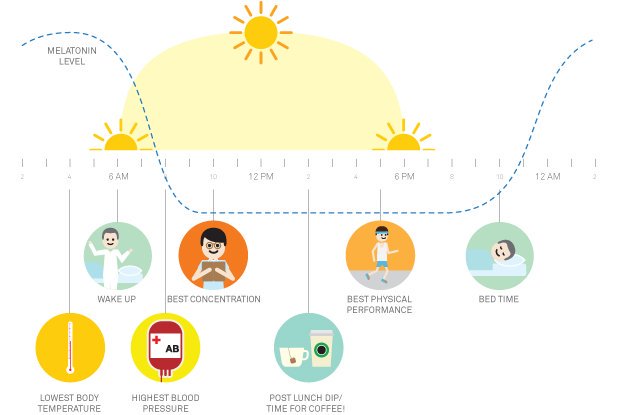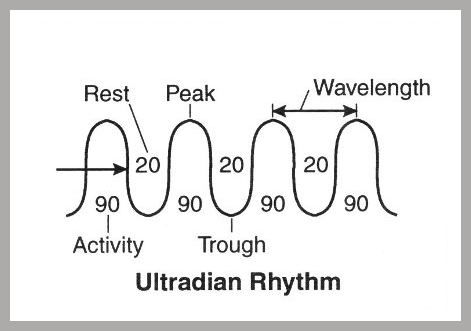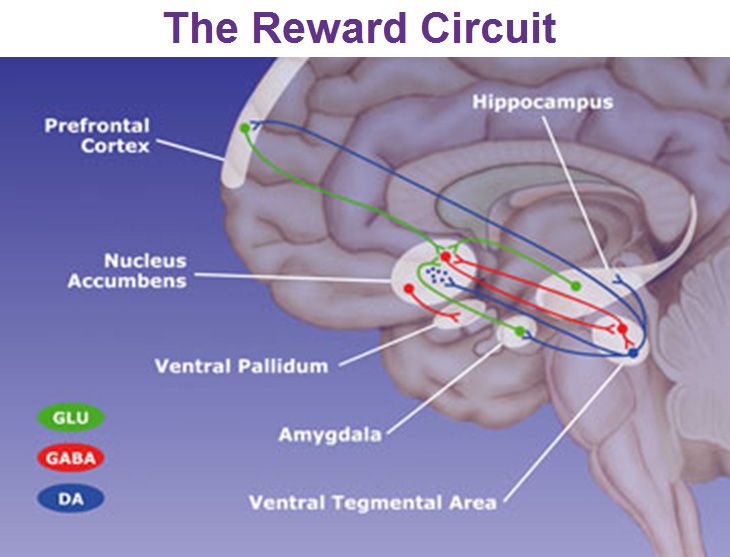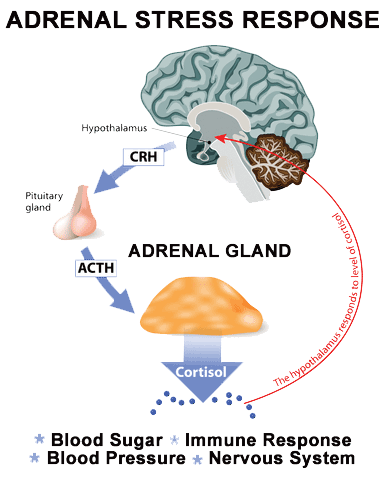Superb time-management skills are worthless when you’re feeling unmotivated, distracted or tired at work. Until robots take over our day-to-day workloads, our productivity is directly linked to our mental and physical well-being.

The expectation at work to remain competent, motivated and attentive for the entire workday puts a huge strain on our biological resources. Thankfully modern science has given us a better understanding of how our bodies work, which can help us leverage our physiology to work smarter.
By implementing a few biological disciplines, you’ll be able to work with your body and avoid unproductive behaviors like impulsivity, sleep deprivation, and stress.
Here are some hacks based on the biology of productivity that can help you and your team perform at their best:
Work With Your Biological Rhythms To Stay Focused
We have a well-defined internal clock that shapes our energy levels throughout the day. By aligning our work habits with the ebbs and flows of our natural cycle, we can optimize daily productivity.

[Source]
Our circadian rhythm is a 24-hour cycle that helps the body detect day and night. We also have a daily cycle called an ultradian rhythm which is a 90-110 minute brain-wave frequency cycle. These rhythms dictate our important bodily processes like sleep, hormone secretion, and metabolism—all of which affect our physical and mental energy levels at work.
The circadian and ultradian rhythms help the body synchronize and stabilize our internal systems according to the time of day. When the rhythms are disrupted, our bodies don’t function normally leading to fatigue and a lack of concentration.
Jet lag is an example of what happens when your natural rhythms are interrupted.
This internal clock is controlled by a group of nerve cells in the brain called the suprachiasmatic nucleus (SCN). The SCN is a small, wing-shaped structure made up of about 20,000 nerve cells in the hypothalamus, located at the base of the brain.
Natural light is the external cue that helps reset our biological clock each day. Light activates neurons in the retina that convert photons to electrical signals. Most of these signals are sent into the visual cortices at the back of the brain that helps us perceive the world.
But a fraction is sent to the SCN instead. The signals to the SCN cause our CLOCK (Circadian Locomotor Output Cycles Kaput—great backronym!) gene to activate, which keeps us awake. But over the course of the day, the proteins created by the CLOCK gene accumulate and act on the gene itself in a negative feedback loop, shutting it down and sending you to sleep.

[Source]
The SCN is a crucial part of the brain, as it cues your biological systems throughout the day to perform their functions at the right times to maintain harmony and health.
How To Plan Your Day For Peak Performance
The timing of each person’s natural rhythm differs, which makes the traditional workday hours problematic for maximizing productivity across a team.
Each person should plan their work to align with their energy levels, focusing on the pressing tasks during high-peak times and saving the easier tasks for down time. To achieve this as a team, companies are adopting a more flexible, asynchronous work approach where employees work on their own schedules to leverage their unique rhythm.
During peak times, work in 90-minute sprints to align with your ultradian rhythm’s 90-110 minute cycles.

The ideal rhythm is to work four 90-minute chunks throughout the day, with 20-minute breaks in between. During your work time, avoid distractions like answering emails and digital notifications. Your mental and physical energy doesn’t refresh on its own. You need those 20-minute breaks away from the work to properly recharge for the next cycle.
Once you find your biological rhythm, you will not only produce more, but you will feel good doing it.
Stay Motivated By Activating Your Body’s Natural Motivator
Getting your body in sync with your natural rhythms will optimize your energy to work, but sometimes you might not feel very motivated. Not to worry. You have a neurotransmitter that can help.
Research has found that we can actually strengthen our desire to work by increasing our dopamine levels. Dopamine is one of our body’s neurotransmitters that affects our cognition and motivation. It helps tell your body when you’ve done something good, and promotes our brains to remember what we did that was good and repeat to get the reward again.
An important reward pathway in the brain is the mesolimbic dopamine system, which detects rewarding stimuli, such as food or sex. Activation of the pathway tells the individual to repeat what it just did to get that reward and to remember the experience so that it can be repeated. This means you can train your brain to remember positive experiences at work.

[Source]
One of the mesolimbic’s stops is the nucleus accumbens. When dopamine increases within the nucleus accumbens, it triggers feedback for predicting rewards. Your dopamine levels and reward activities can increase or decrease based on external factors such as diet, exercise, and your own desire to win.
A 2012 study from Vanderbilt University found that people with more dopamine in their brain were more likely to work hard to receive a reward. Even when the probability of success was low, the individuals with more dopamine still had more motivation for the task.
How to Train Your Brain To Desire Success
When your brain anticipates a rewarding experience, dopamine spikes to increase motivation and attention. Here are some ways to train your brain and keep dopamine levels healthy:
- Reinforce Progress. As you record progress and share with your team, the positive reinforcement trains your brain to desire more. You can record small accomplishments at work with a digital progress tool like I Done This. Praising and recognizing others can also increase your dopamine.
- Will Yourself to Work. Research found that results-driven focus motivated people to complete their work. If you focus on how great the result will feel, your body will react.
- Dopamine-Producing Diet. Dopamine is made from the amino acid tyrosine. Eating a diet high in tyrosine will ensure you’ve got the basic building blocks needed for dopamine production. Dopamine-producing foods include animal products, natural probiotics, and vitamin B-rich foods like leafy green vegetables, fish, poultry, and whole grains.
- Low-impact Exercise. Taking walks, or doing gentle, no-impact exercises like yoga, tai chi, or qi gong, all provide powerful mind-body benefits that increase dopamine levels.
- Decrease Stress.Work can be stressful. High-stress levels are correlated with dopamine deficiency. While you can’t always control your circumstances, you can manage stress to help you stay motivated until the task is complete.
Too Much Stress Makes You Tired and Kills Productivity
There are high-stress times at work when you become focused and energized to miraculously meet your deadline.
During these stressful moments, your body releases cortisol to trigger a fight-or-flight response to help you handle the situation. In small doses, cortisol is completely natural and effective.
When you experience stress, your Hypothalamic Pituitary Axis stimulates the pituitary gland to secrete adrenocorticotropic hormones (ACTH). ACTH then stimulates the adrenal glands to produce the hormone cortisol helping the body to maintain steady supplies of blood sugar to help you cope with prolonged stress and then helps the body to return to normal.

While your stress response system helps you perform under pressure, it was not designed for prolonged time periods.
Constant stress at work keeps your cortisol levels high, which leads to several physical issues that kill your productivity, including sleep disorders, constant fatigue, anxiety and lower immunity.
If you want to become a productive manager, I would highly recommend you read this article that explains every point in detail.
A global work survey found that stressed employees took double the sick days of less-stressed employees. This isn’t just a mental effect; it’s a physical reaction to the effects of cortisol on the body.
In 2015, a group of Korean scientists studied the effects of stress on the musculoskeletal system of hospital workers. Those that were more stressed were more likely to suffer from minute damage to their muscles and skeletons that accumulate over time, leading to them needing more time off work to recover.
How to Balance Cortisol to Stay Healthy
You can’t always avoid stressful situations, but you can take steps to reduce our cortisol levels on a daily basis. Here are a few ways you can counter those stressful moments at work:
- Hit the sack early or take naps: The difference between getting six hours of sleep instead of the suggested eight equates to a 50% increase of cortisolin the bloodstream. When you fail to get 8 hours, take a nap the next day to reduce cortisol.
- Switch your coffee for black tea: When volunteers at University College London were given a stressful task, the cortisol levels of those who were regular black-tea drinkers fell by 47% within an hour of completing the assignment, while others who drank fake tea experienced only a 27% drop.
- Play with a dog: It turns out that dogs in the office have an important therapeutic purpose. Petting your own dog or another person’s dog has been shown to significantly decrease stress hormone levels and increase oxytocin, endorphins, and other healing hormones.
When You Control Your Body, You Control Your Productivity
You are not a machine that can be turned on and off at will. Your productivity is linked to your health and overall well-being.
Once you understand your body’s unique rhythms and reward systems, you can put a daily plan together to manage your work based on your biological clock. You’re in charge of your body, and the potential to perform at a high level comes down to how you treat it.

